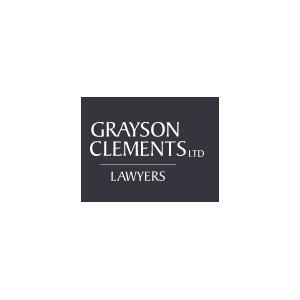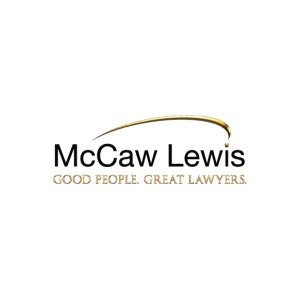Best Ethics and Professional Responsibility Lawyers in Hamilton
Share your needs with us, get contacted by law firms.
Free. Takes 2 min.
List of the best lawyers in Hamilton, New Zealand
About Ethics and Professional Responsibility Law in Hamilton, New Zealand
Ethics and Professional Responsibility Law in Hamilton, New Zealand, revolves around maintaining high standards of ethics and conduct across various professions. This field of law seeks to ensure that professionals abide by a set code of conduct, promoting accountability, integrity, and responsibility. Often, this encompasses a diverse group of professions, including, but not limited to, lawyers, doctors, accountants, and engineers. Hamilton, being a hub of education and professional services in the Waikato region, has established robust structures and guidelines to uphold these standards.
Why You May Need a Lawyer
Legal assistance in Ethics and Professional Responsibility is often necessary in situations where individuals or professionals face allegations of misconduct or breaches of conduct codes. Common scenarios include disciplinary hearings, disputes involving professional ethics in business or legal practice, and claims of negligence. Legal advice can guide individuals through the complexities of compliance with ethical standards and can also be crucial for businesses seeking to develop or enhance their ethical framework.
Local Laws Overview
In Hamilton, laws relating to Ethics and Professional Responsibility are mainly governed by national legislation complemented by local by-laws and professional ruling bodies. Key aspects include the New Zealand Lawyers and Conveyancers Act, Health Practitioners Competence Assurance Act, and the Code of Professional Conduct for Accountants. The city enforces these laws to protect consumers and clients, maintaining trust and integrity within professional transactions.
Frequently Asked Questions
What constitutes a breach of professional responsibility?
A breach typically involves failures in adhering to the established standards, such as conflicts of interest, negligence, confidentiality breaches, or misconduct.
Which professional sectors are most affected by these laws?
The laws primarily affect legal, medical, accounting, engineering, and other service-centric professions.
Can businesses face penalties for ethical breaches?
Yes, businesses can face fines, sanctions, or be required to undertake corrective actions for ethical breaches.
How can a lawyer assist in a professional ethics case?
A lawyer can provide representation in hearings and investigations, offer advice on compliance, and assist in the development of ethics policies.
Are there any governmental bodies that oversee ethics and responsibility in Hamilton?
Yes, bodies such as the New Zealand Law Society, Medical Council of New Zealand, and Chartered Accountants Australia and New Zealand oversee these areas.
How are disputes in professional ethics usually resolved?
Disputes can be resolved through mediation, arbitration, or formal hearings depending on the severity and nature of the breach.
What preventative measures can professionals take?
Professionals can engage in regular training, seek guidance on ethical dilemmas, and ensure ongoing compliance with industry codes of conduct.
What is the role of ethics training for professionals?
Ethics training helps professionals understand applicable standards, encourages ethical decision-making, and reduces the risk of misconduct.
Can professionals appeal decisions made against them?
Yes, there are often processes in place to appeal decisions, generally through a higher authority or tribunal specific to the profession.
Are clients involved in the ethics and professional responsibility processes?
Clients may be involved as witnesses or complainants and are often crucial in providing evidence or testimony during investigations.
Additional Resources
For further guidance, professionals and clients can reach out to organizations such as the New Zealand Law Society, Professionals Ethics Committee, and the Commerce Commission New Zealand. These bodies provide resources, guidance, and support for upholding ethical practices across professions.
Next Steps
If you require legal assistance in Ethics and Professional Responsibility, consider contacting a local law firm specializing in this field. You may want to prepare relevant documents and outlines of the issue you face prior to consulting a lawyer. Additionally, checking with professional bodies for preliminary advice or guidance can also provide clarity before engaging in legal actions.
Lawzana helps you find the best lawyers and law firms in Hamilton through a curated and pre-screened list of qualified legal professionals. Our platform offers rankings and detailed profiles of attorneys and law firms, allowing you to compare based on practice areas, including Ethics and Professional Responsibility, experience, and client feedback.
Each profile includes a description of the firm's areas of practice, client reviews, team members and partners, year of establishment, spoken languages, office locations, contact information, social media presence, and any published articles or resources. Most firms on our platform speak English and are experienced in both local and international legal matters.
Get a quote from top-rated law firms in Hamilton, New Zealand — quickly, securely, and without unnecessary hassle.
Disclaimer:
The information provided on this page is for general informational purposes only and does not constitute legal advice. While we strive to ensure the accuracy and relevance of the content, legal information may change over time, and interpretations of the law can vary. You should always consult with a qualified legal professional for advice specific to your situation.
We disclaim all liability for actions taken or not taken based on the content of this page. If you believe any information is incorrect or outdated, please contact us, and we will review and update it where appropriate.










